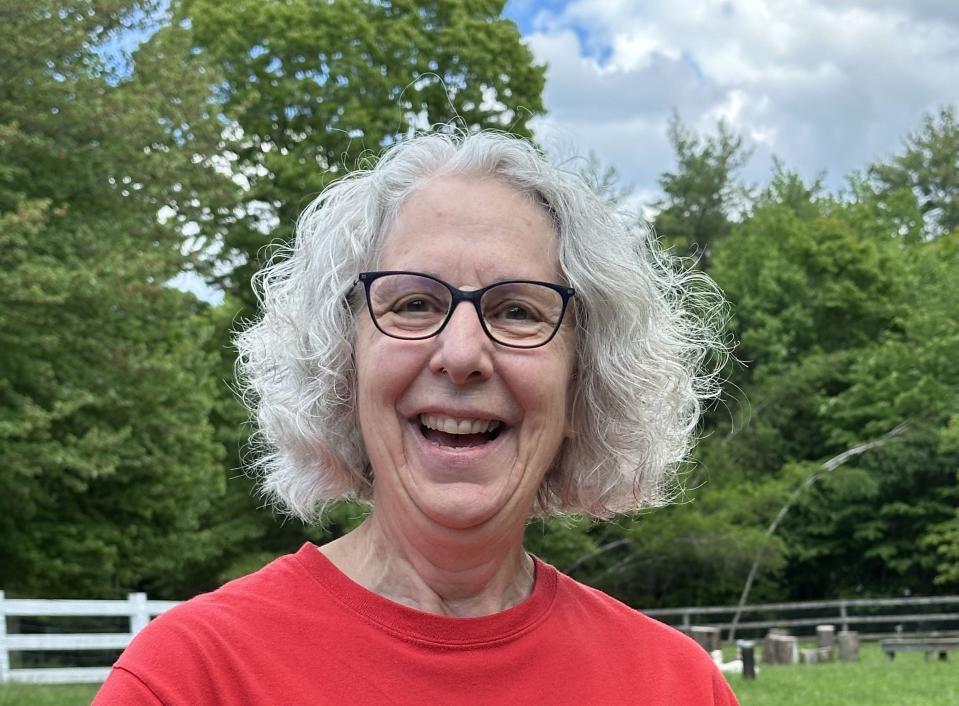My brother’s agonizing death shows why lawmakers should pass medical aid-in-dying bill
On Jan. 17, my brother Chuck died of a rare bladder cancer six days after entering hospice care. All of us who were with him during his last days saw how the ever-increasing doses of morphine and anti-anxiety medications could not keep up with his suffering.
Those six tortuous days for my brother only deepened my conviction that we need the end-of-life care option of medical aid in dying to peacefully end unbearable suffering for mentally capable, terminally ill adults with six months or less to live in Massachusetts.
For Chuck’s former wife, who is Catholic and had opposed medical aid in dying, witnessing Chuck’s passing and seeing how much more humane and compassionate this option would have been for Chuck turned her into a supporter. It was clear that if Chuck could have died the way he wanted, he would have been surrounded by friends and family, telling stories, listening to Etta James, and being lauded by those he loved. What he experienced, by contrast, was exactly the end he feared.

In 2021, Chuck had an episode of blood in his urine. He was sent to a urologist, who said: “I’m not too worried about this; we’ll check it again in six months.” It would be another year before it happened again. This time, Chuck saw a different urologist, and he soon learned he had bladder cancer.
Chuck underwent immunotherapy, but a follow-up cystoscopy in May 2023 revealed that his tumor had doubled in size and transformed into small-cell carcinoma, an extremely aggressive and rare form of bladder cancer. His oncologist revised Chuck’s prognosis to a year and a half. Chuck decided to go ahead with a course of targeted radiation and concurrent chemo, knowing it would not cure his cancer but might give him more quality time.
Unfortunately, in late October, follow-up scans showed metastases in Chuck’s liver and extensive lymph node involvement in his abdomen and chest. He tried a different course of chemo in hopes that it would give him a few more good days; it did not.
At this point, Chuck frequently said he wanted the option of medical aid in dying.
Five years earlier, Chuck had been the caregiver for his partner, Conky, who loved dancing and the blues as much as Chuck, as she died from a very aggressive lung cancer. He provided in-home hospice care for her until her pain was no longer manageable and she was admitted to inpatient hospice, dying within days with Chuck by her side. Chuck knew what pain and suffering looked like at the end. He did not want that.
After a CT scan in January showed that the cancer had spread throughout Chuck’s abdomen, Chuck agreed to go into hospice. My brother’s caregivers did the best they could to make him comfortable, but managing his growing pain and anxiety was a challenge. Once he was unconscious, we told him: “Conky is waiting for you. Go ahead and be with her. She wants to dance with you again.”
After suffering for far too long, Chuck finally joined Conky.
A UMass Amherst poll conducted in May found that two out of three Massachusetts voters (67%) supported “allowing terminally ill, mentally capable adults with a prognosis of six months or less to have the option of obtaining life-ending medication.” Only one out of nine voters (11%) opposed it. Majority support spanned the age, education, gender, income, party ID and racial spectrums, as well as Biden supporters (77%) and Trump supporters (53%) in the 2020 election.
For the first time in this bill’s long history, lawmakers favorably moved the End of Life Options Act out of the Joint Committee on Health Care Financing to the Senate Ways and Means Committee in late April.
I urge Massachusetts legislators to seize this historic opportunity to demonstrate compassion and love for their dying constituents and pass this legislation this year. Ten other states, including nearby Maine and neighboring Vermont, plus Washington, D.C., allow this option for terminally ill adults. I want people in my home state to be able to avoid protracted suffering in their last days and gently die on their own terms.
Barbara Webster lives in Upton with her husband, Skip Tannen.
This article originally appeared on The Milford Daily News: Seeing her brother suffer, Upton woman calls for passing aid in dying

